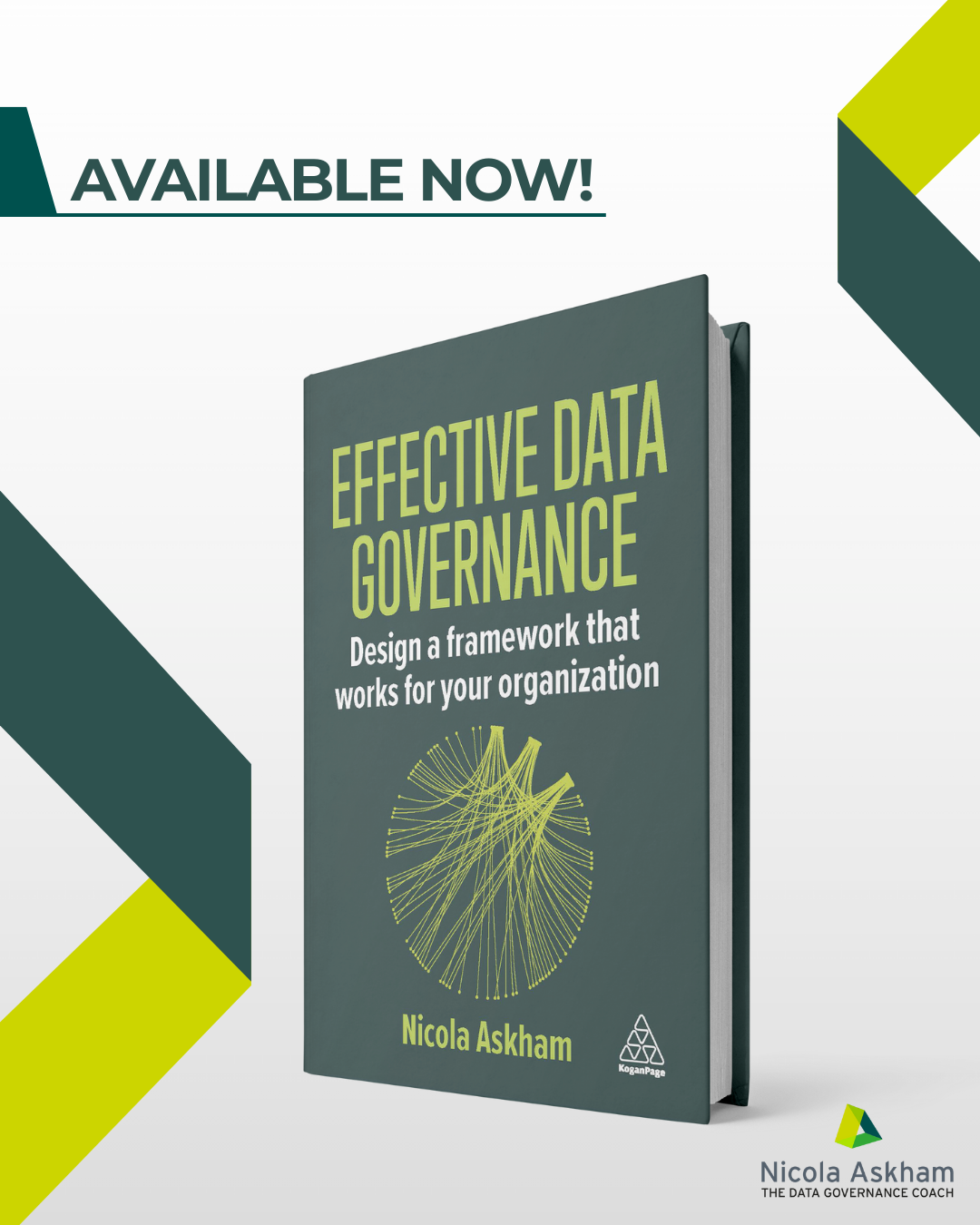Why Data Governance Can Be Overwhelming
/Lots of people who come on my training courses say that they are feeling overwhelmed by the sheer magnitude of what they've got themselves into, and are confused by where to start their Data Governance initiative or (if they have already started) what to do next.
To be honest, that’s exactly how I felt when I was first starting out in data governance. I used to compare it to juggling. Many years ago, before I discovered data, the Bank I worked for sent me on a leadership course. On that course, they taught us to juggle. Some people found it just clicked and they were amazing at it, but I found it incredibly difficult.
However, at the end of a five day residential course, I did manage to successfully juggle three balls (for a short period of time). Other people on the course managed more than three balls, but we each discovered our limit of how many balls we could keep in the air at any one time.
When I first started out in Data Governance, I felt the same. There is so much that you have to think about when you're doing data governance, that it can feel just like you are juggling. There are too many balls for us to keep in the air at any one time. I came to the conclusion that you can't do everything at the same time. More importantly, I worked out that you shouldn't be doing them all at once anyway. That might be good news, but where lots of people struggle is knowing which activities you do need to do and in what order.
When I was working on my methodology I noticed that you need to do certain things in the same order for your initiative to be successful. Having said that, there's also a number of other things that will vary depending on your organisation and exactly what you're trying to do.
The juggling analogy has stayed with me because when I had a video made to promote my online training course last year, the juggling balls came to mind. You can see that video here if you're interested.
My methodology takes you through everything you need to consider and do in the right order. But that doesn't mean that Data Governance isn't without its challenges. There are many challenges and the biggest one is the culture change you need to instigate. At the moment, most people in your organisation probably aren't thinking about data being part of their job at all. To be successful at data governance, you need everybody in your organisation to start thinking about the data they're creating or using, worrying about the quality of it and whether they should be using it for the purposes they are.
That's a big challenge on its own and there are lots of activities, communications and training that you're going to need to do to affect the culture change you require.
A second challenge I frequently see is that data is not a top priority. Perhaps you are lucky enough to work for an organisation that is focussing on “becoming a data-driven organisation” or is embarking on a digital transformation. This sounds great as clearly your organisation is finally interested in data, right? Sadly most people focus on the exciting outcomes and don’t understand that their data needs to be well understood and of good enough quality to facilitate these lofty ambitions. If this is the situation you are facing, it will take a lot of effort to convince your stakeholders that they need to implement Data Governance first so that such initiatives can be successful.
You've got to make the case for data governance before you can even start designing and implementing a framework (as I've mentioned many times in the past, there is no such thing as a standard data governance framework!)
When you do get approval to start, there is a lot of work to figure out a framework that will suit your organisation’s structure and culture and once you’ve done that you're going to need to do an awful lot of stakeholder management.
You need to engage your stakeholders, identify and train Data Owners and Data Stewards. You are going to need a detailed communications and training plan. I often say that you cannot do too much communication about data governance because you are trying to affect the culture change that I mentioned earlier. These communications need to be good quality, well written targeted communications and briefings. This in itself is a mammoth task.
So having considered all of this it's no big surprise that a lot of people get overwhelmed with data governance and just don't even know where to start.
That's one of the reasons I started offering data governance training five years ago.
I went through the pain of my first few data governance initiatives before I worked out my methodology. I realised that I could help people avoid some of the pitfalls and the pain that I had gone through by sharing my methodology and that's exactly what my training course does. I take you through stage by stage what you need to do and in what order. I also share skills, tips and techniques to make you more successful.
What is more all attendees of my training course (both in-person and online) get a copy of the actual checklist I use when implementing data governance for my clients. So they really don't need to feel like they're juggling.
If you want to make 2020 a great year for your Data Governance initiative, why not come along (and if you’ve got unused training budget, why not book before the year-end to make sure your budget doesn’t get forfeited).
If you have any questions about the course and whether it is right for you please feel free to schedule a call with me using the button below:








